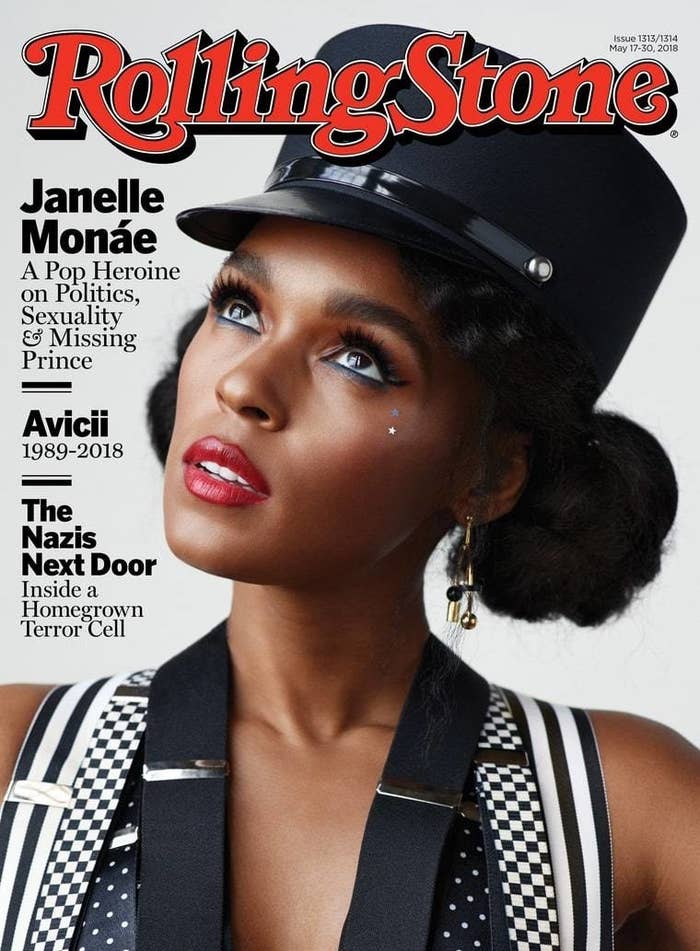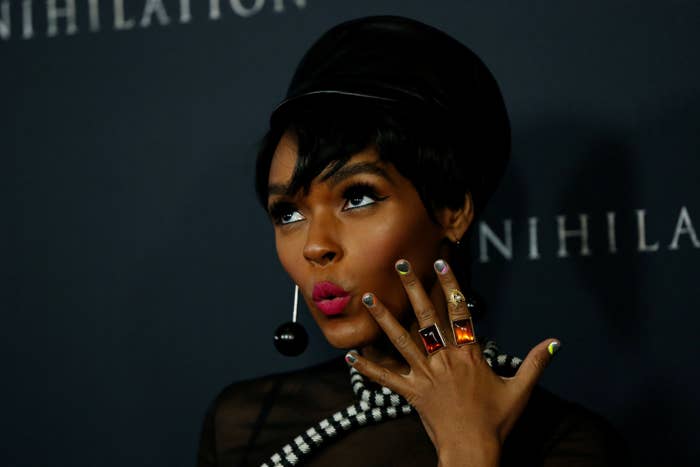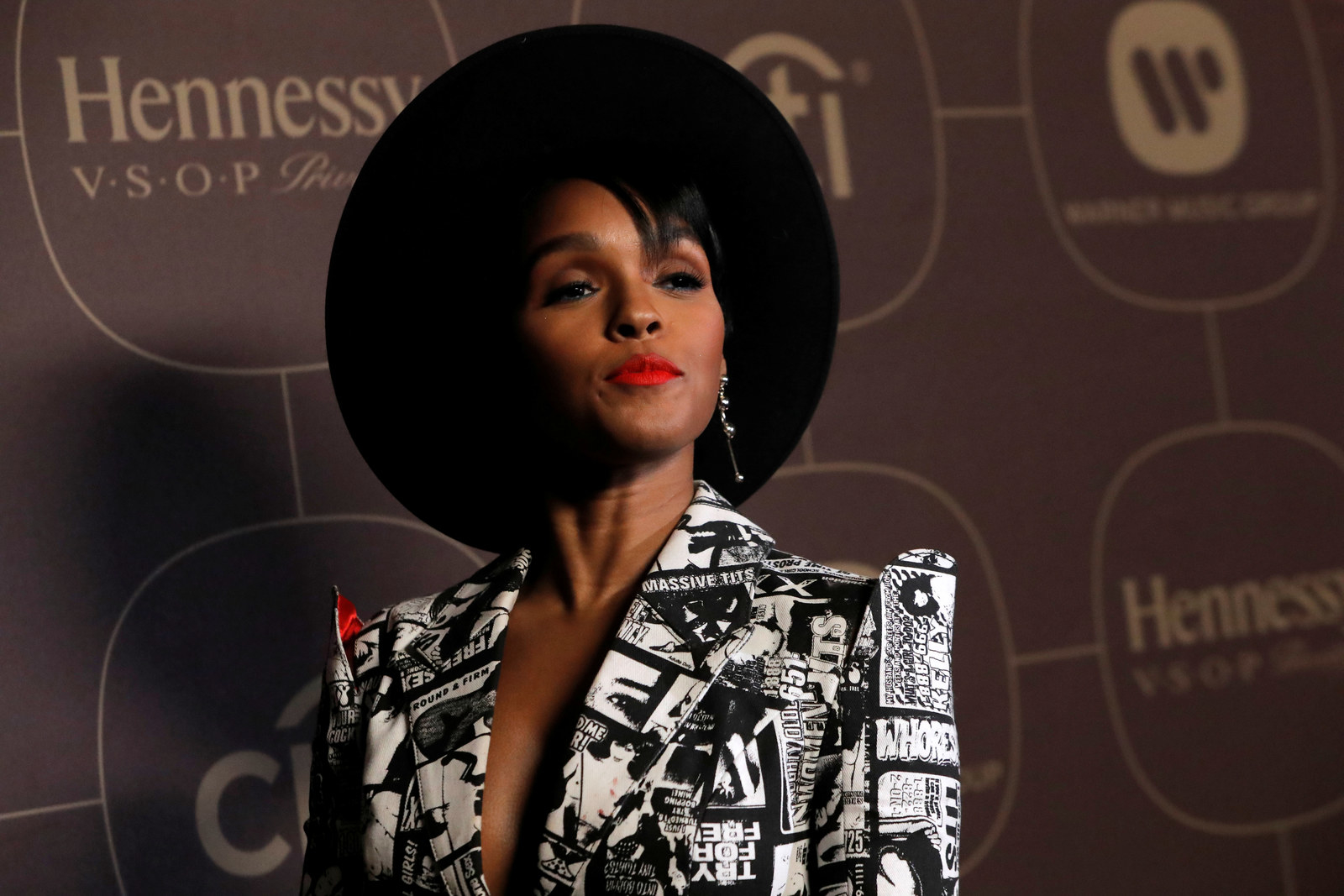Singer, actor, and all-around funk space cadet Janelle Monáe got personal in her recent cover interview with Rolling Stone, released Thursday. The artist declared herself a "queer black woman" and opened up about her journey to embracing her pansexuality.

“Being a queer black woman in America — someone who has been in relationships with both men and women — I consider myself to be a free-ass motherfucker,” she said in the interview.

She also spoke frankly about the pressures of living up to impossible industry standards.
Monáe mentioned, as many die-hard fans will already be aware of, that many of the answers to questions concerning her sexuality were already all laid out in her previous work.
She cites "Mushrooms & Roses" and "Q.U.E.E.N.," two songs that reference a character named Mary as an object of affection. In the 45-minute film accompanying Dirty Computer, "Mary Apple" is the name given to female "dirty computers" taken captive and stripped of their real names, one of whom is played by Tessa Thompson. (The actress has been rumored to be Monáe's girlfriend, though Monáe won't discuss her dating life.) The original title of "Q.U.E.E.N.," she notes, was "Q.U.E.E.R.," and you can still hear the word on the track's background harmonies.
“I want young girls, young boys, nonbinary, gay, straight, queer people who are having a hard time dealing with their sexuality, dealing with feeling ostracized or bullied for just being their unique selves, to know that I see you,” she said of her third full-length album, Dirty Computer, which drops Friday. “This album is for you. Be proud."

With songs like "Make Me Feel," which was quickly hailed as a bisexual anthem, the project runs thick with themes of sexual fluidity and freedom.
In some of the videos that have been released so far, Monáe gets up close and personal with her video costar, actor Tessa Thompson.
Following the Rolling Stone interview's release, fans were quick to sound off on the real impact Monáe's coming out had for them personally.
We been knew Janelle Monáe was a member of the tribe. But in an America where the LGBT murder rate has gone up by nearly 90%, and when queer black folks are erased in both queer and black communities, a famous black woman stood proudly and claimed her queerness That’s important https://t.co/zUCfoLpibV
I’ve never felt more excited and pleased for a queer woman to come out. I see myself reflected more in Janelle Monae than any other queer woman celebrity ever. I’m not sure if it’s because she’s my age, she’s intelligent, she’s Black as fuck or she’s just magic. But, dude.
Crying walking down the street. I’m so proud of her and didn’t know I needed this. She owed us nothing. She has already given us such Lush queer futures to live in. But amen. Yes, Janelle. Yes. Yes. Yes, my queer sister. https://t.co/kObX6wBaRy
it's hard to imagine a better representative of the queer community than @janellemonae. brilliant. inclusive. talented in all things. uses her platform. is anyone else geeking out right now?!
And many emphasized the importance of black celebrities coming out and being open about their queerness while in the spotlight.
I'm so happy Janelle Monae is being vocally queer I mean, it was kind of obvious if you knew where to look But the world needs more people with platforms talking explicitly about being LGBTQ+ ESPECIALLY black women
Even in that Janelle Monae piece she says she has to deal with the rest of her family after Make Me Feel. Sometimes coming out, being queer, living in your own body (because not everyone gets a closet to hide in) means giving up the community you were born with (if you have one).
I'm sending the Janelle Monae interview to my queer friends and saying "Look, she's just like me!"
